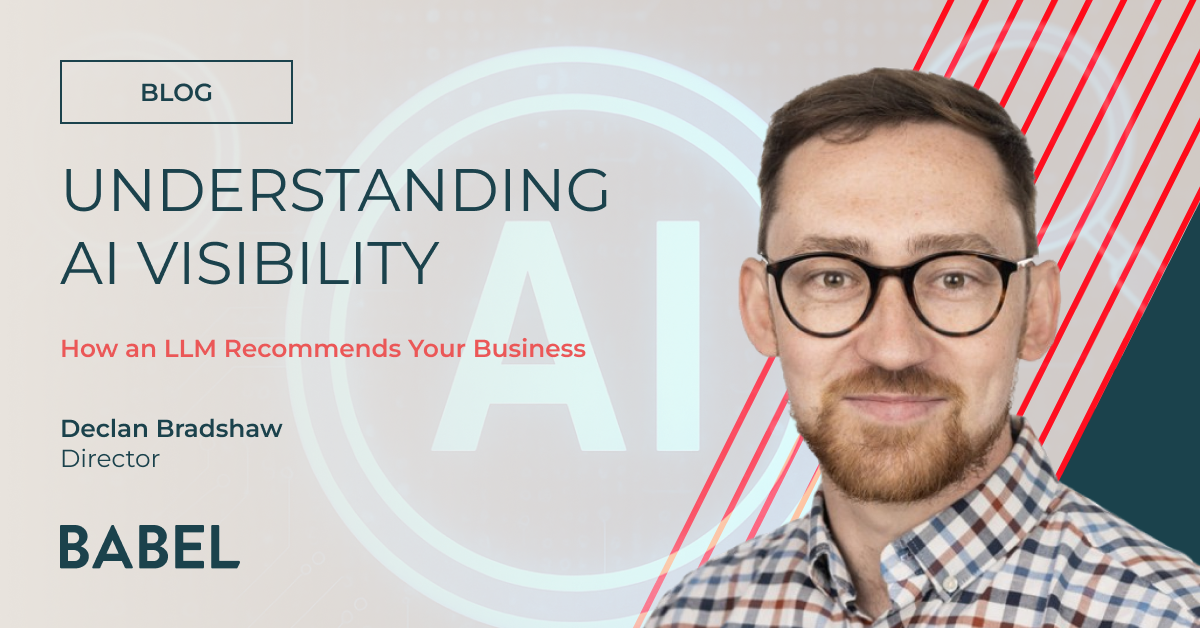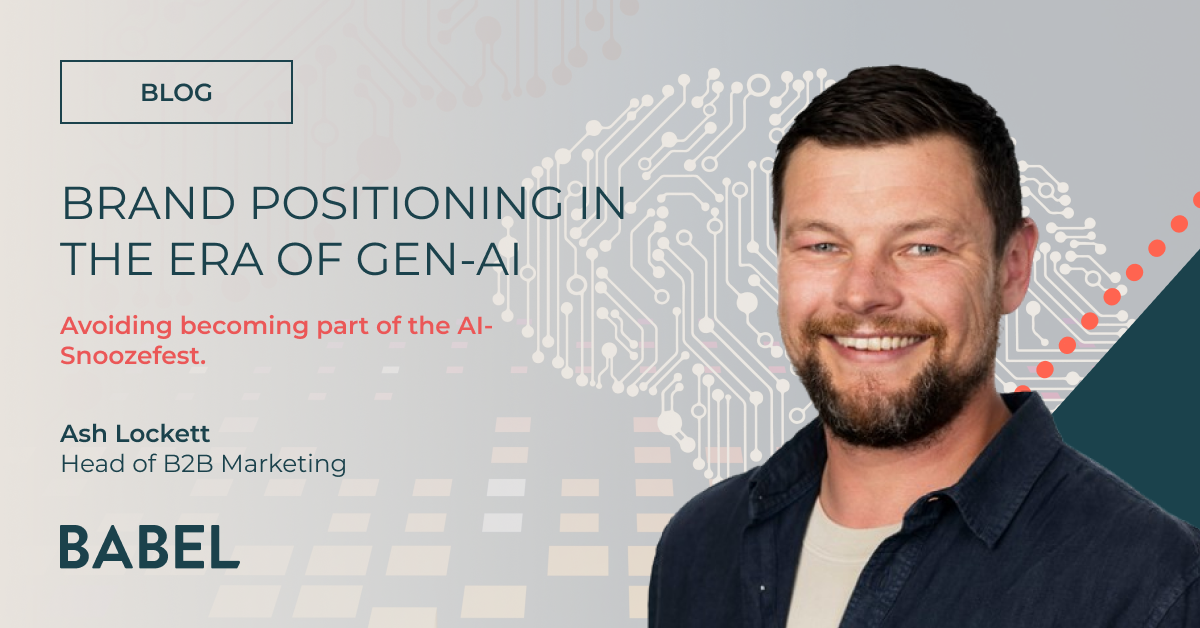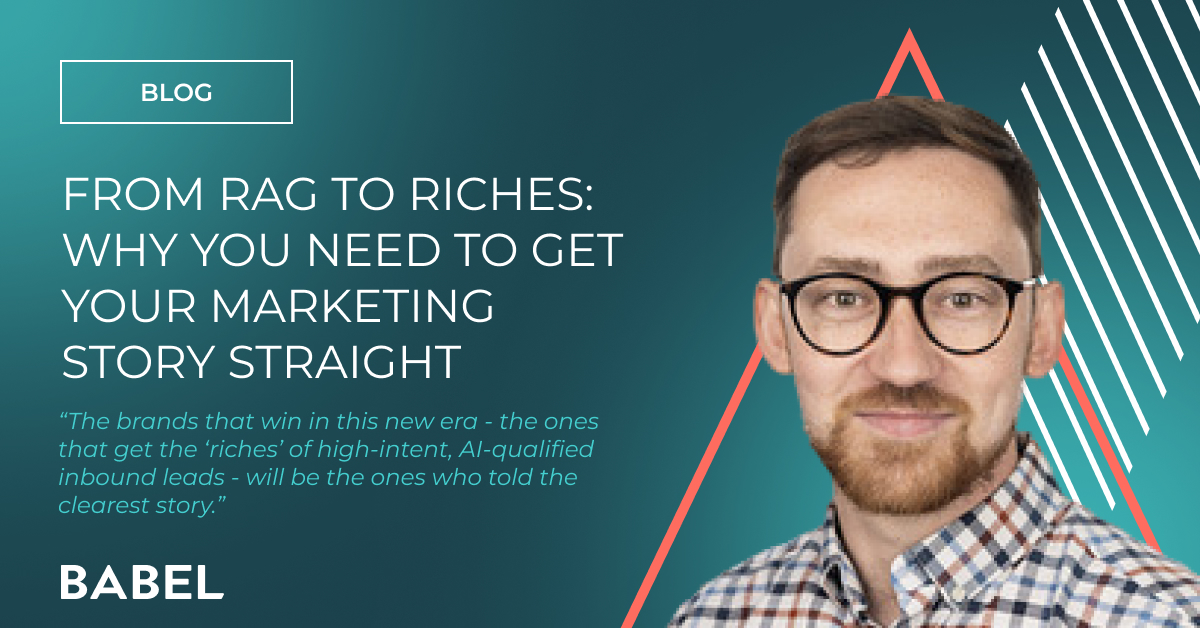"Don't believe the hype!" - in the case of AI, we should start to
This week some of the Babel team have headed to the Mobile World Conference (MWC), supporting clients and securing media briefings at the huge telco event in Barcelona.
It's no surprise that one of the biggest themes being discussed is artificial intelligence (AI) - more specifically, how the telco sector is beginning to realise the benefits of AI following many months of hype in the world's media.
2024 was billed by many as the year in which we would start to see the promise of AI come to life. According to IDC, enterprises spent about $19.4bn worldwide on generative AI technologies in 2023, and that amount is expected to double this year.
While the undoubted potential of AI is clear to see, there have been words of caution from some influential commentators. The chair of the US Securities and Exchange Commission, Gary Gensler, was recently reported saying that the "public feeding frenzy" over AI may encourage some companies to make hyped-up claims about their use of AI or what the technology can deliver. He warned that publicly traded companies which make questionable claims about their use of AI risk engaging in "AI-washing".
So, should we believe everything that we hear when it comes to the potential for AI to transform every aspect of our lives? Or has the topic been 'overhyped'?
As part of our 'B2B Tech Trends 2024' podcast series, I asked guests for their views. Here's a small selection of their responses:

Kamales Lardi
Digital and business transformation leader
"The last eight/nine months have been transformative in terms of AI. One of the most exciting things that I find about the rapid development as well as the mass adoption of, particularly generative AI, that we've seen is the fact that conversations have shifted within companies. Leadership teams, as well as generally organisations as a whole, are starting to see the value and starting to accept digital transformation as a necessity within their organisations.
"This shift in mindset started around the post-COVID era when organisations were overnight forced to adopt technology. But what I find still a little bit challenging, as well as alarming, particularly being very close to the market and in constant conversations with leadership teams, is the hype cycle that tends to follow technology development. Over the last couple of years, we had a big hype around crypto as well as blockchain. We had the hype around metaverses, and this year we're looking at generative AI being the top point of conversation in many companies.
"I do believe that artificial intelligence will bring significant transformation in the business environment. I think that it's going to create benefits and values that are transformative. However, it isn't a silver bullet solution, and it's unrealistic for organisations to think that artificial intelligence is going to be the one-all fix for challenges that you're facing."

Christina Trampota
Tech industry leader and B2B influencer
"It (AI) is definitely at the peak of the hype cycle. I think it's overhyped in ways where people have seen it as completely magic. I think it's been overhyped when it has been used as just a sales term - it's almost like a colour which someone is using to paint on their business or their brand or products.
"However, I would say, let's look at this from a path of opportunity, because it really can lead to some new channels, some new customers for any business out there, as well as new ways to serve them. AI has been around for years now and used by a lot of the oldest industries, such as communications, commerce and payments. What's new in the last year is generative AI and how it's exploded, scaled out, being used across many more organisations and layers of ecosystems that people thought might never be possible.
"I think that there is lots of optimism to be had around AI and its potential for enhancing enterprise productivity."

Shelly Kramer
MD and principal analyst, theCUBE Research
"With anything like this, you're going to have situations where you have over-hype. But I think on the other side of this, there are situations where there's not enough hype. And I'm going to give you an example. I have twin daughters who are in their last year of high school, getting ready to go to college and what they are not hearing about enough is artificial intelligence. They are not getting insights from counsellors or from teachers that challenge them to think about how AI might change the workforce that they're going to be entering in a short handful of years.
"My daughter's majoring in journalism and I'll ask 'Have you spent any time researching the impact of AI on journalism?' The responses that I'll get from parents or from young people is that they don't even have any clue that AI is impacting the world of publishing or the work of journalists in any way whatsoever. And they're just thinking about a career choice based on what they might know about what a journalist has done over the last 20 years and what we've seen in movies. But the reality of it is there are many professions that AI is having a profound impact on. Doing your homework and then being able to factor that into the decisions you make are incredibly important."

Dr Sarah-Jayne Gratton
Award-winning technology evangelist
"It has been so overhyped. A lot of what is coined artificial intelligence, I prefer to call it assistive technology. It's there to assist and it should be there to assist humanity. In healthcare, for example, I was so fortunate to work with a company using artificial neural networks along with mammogram technology to analyse cancer cells. These came up with an accurate diagnosis in the late 90s - more than 98% of accurate cancer diagnoses in breast cancer patients compared to 62/63% because of human error.
"That was really exciting to be involved with. And it's assistive technology - it's only as intelligent as the algorithms that you program into it. Like everything, it depends on someone telling it what to do. Certainly, for now, that is changing with generative AI. In agriculture, there have been numerous challenges for the industry. Getting seasonal workers is a really big one, and supermarkets have now said they will take smaller vegetables because of the flooding. I'm working alongside the fresh produce consortium to address these challenges, looking at the ways that artificial intelligence - assistive technology - can help tackle these challenges in the fields, all the way from farm to fork."
You can listen to the full 'B2B Tech Trends 2024' podcast series here.




.jpg)



.jpg)

.jpg)


